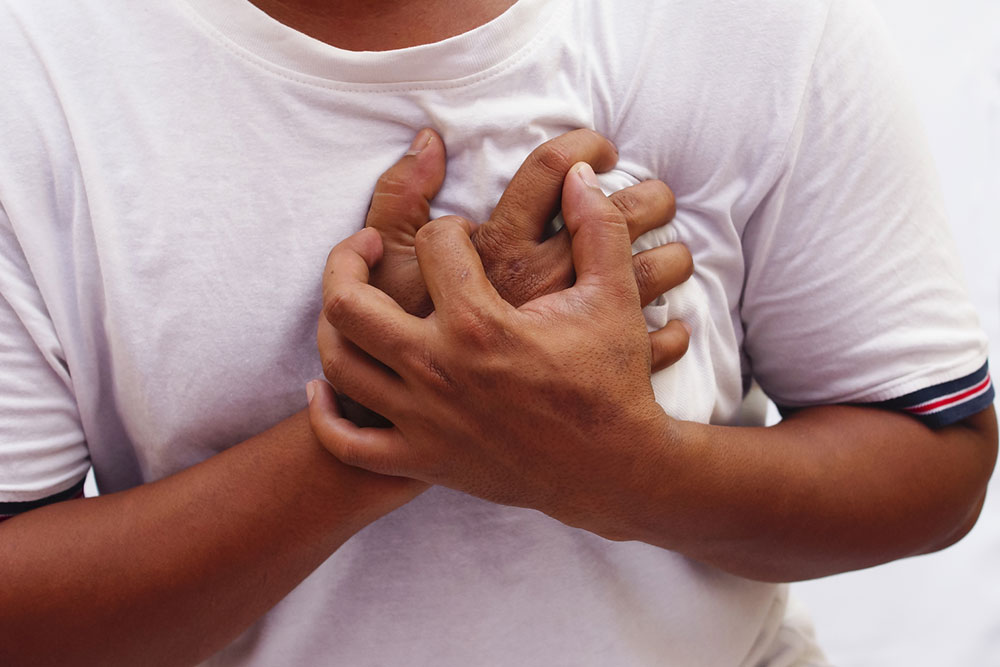Common Causes of Pain and Tightness in the Chest

Many people experience chest pain due to various reasons. In extreme cases, chest pain can be an indicator of a heart attack. But it can also be a sign of respiration issues, digestion problems, and other conditions. Chest pain should be taken seriously as it can lead to life-threatening conditions. Below are a few of the reasons why you might be experiencing chest pain.
- Angina : It is a condition wherein you feel pressure in your heart as if it is being squeezed. The blood is still flowing to the heart but its supply is exponentially reduced. You might experience dizziness or pain elsewhere in the upper body. Angina is very similar to a heart attack but does not cause permanent damage to the heart tissue. It is one of the common causes of chest pain. As soon as you feel the symptoms, you should consult the doctor to get professional medical help.
- Heart attack : When you feel a very sharp pain in the heart, then it is most likely a heart attack. A heart attack is caused when one of the arteries supplying blood to the heart muscle is blocked. There might be a sharp stabbing sensation along with pressure or tightness in the chest. Some other symptoms are shortness of breath, nausea, cold sweat, a lump in the throat, and numbness in the arm or hand. A heart attack is a medical emergency and the sooner you see a doctor the lesser will be the damage.
- Collapsed lung : A collapsed lung is the condition when the air gets in between the chest and the lung walls. This can cause a feeling of pressure when you inhale. In case of a collapsed lung, breathing in becomes really difficult. If you suspect this you should immediately see a doctor. A collapsed lung is one of the causes of chest pain.
- Pneumonia : This is a sharp type of pain that you experience while inhaling. The chest pain linked to pneumonia usually starts as a stabbing pain that only gets worse when you inhale. Other symptoms of this could be a severe cough, chills, and fever. You might also witness a bloody cough, in this case, it is advised to immediately consult a doctor.
- Asthma : Asthma is yet another common cause of chest pain. You might experience tightness in the chest and asthma causes inflammation the airways. The main symptom of this condition includes not being able to breathe and wheezing. An asthma attack can also make you feel a very uncomfortable tightness in the chest.
- Lung cancer : Lung cancer can cause chest pain. You might experience unexplained chest pain which is not related to any coughing. Lung cancer is caused due to the growth of abnormal cells in the lungs. Symptoms might include shortness of breath, chest pain that might also lead to back pain and shoulder pain. You might even feel chest pain while you laugh or breathe deeply. This is a sure sign for you to visit your doctor.
- Gastroesophageal reflux disease : Acid reflux is a common cause of heartburn and chest pain. It occurs when the stomach acid moves up the esophagus to irritate the lining of the esophagus. GERD is a serious condition that is among the causes of chest pain. You might feel a burning sensation in the heart and the situation can sometimes get worse when you lie down. GERD can also cause you difficulty in swallowing. You might feel as if there is something caught in the throat. If not treated on time, this issue can get worse.
- Esophageal rupture : The chest pain caused due to this condition can be mild but comes quickly. It happens when the lining of the esophagus tears. The foods as well as liquids escape from the tear and enter the chest cavity. This can be one of the causes of chest pain. Depending on the size and location of the tear, you might experience mild or severe pain. Other related symptoms are vomiting with blood, fever, rapid breathing and nausea. This is indeed a medical emergency and you should definitely see a doctor. A surgeon can clean the area that has been affected and repair the tear.
- Gallstones : Gallstones can cause an intense pain that is experienced from the upper abdomen to the chest area. Gallstones are clusters of cholesterol. They are formed in your gallbladder. When gallstones block the bile duct is when you experience a lot of pain in your upper abdomen. In other words, it is called a gallbladder attack. Symptoms are often experienced after having a large meal. You should definitely see a doctor if you experience fever, vomiting, and a change in the color of your urine.
There are a variety of possibilities for you to experience tightness in the chest and chest pain. You can always keep a lookout for any of the above-mentioned causes of chest pain and opt for treatment options. It is always advised to see a doctor at the earliest to administer the best treatment possible.